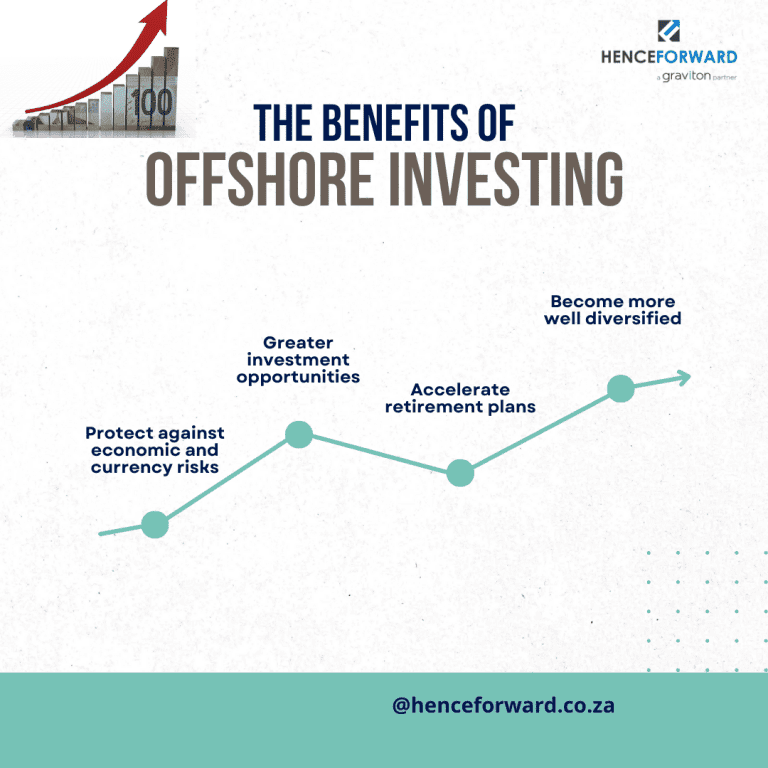Investing Off Shore: How Political Stability Affects Investment Success
Wiki Article
Exploring How Spending Off Coast Functions: A Comprehensive Overview
Investing offshore provides an intricate landscape of difficulties and chances. Comprehending the different kinds of offshore accounts is essential for anyone considering this course. The benefits, including boosted privacy and property defense, are considerable. Legal and tax obligation effects warrant careful focus. As capitalists look for to optimize their profiles, the steps to develop a viable offshore financial investment method end up being necessary. What are the crucial elements that must navigate to succeed in this venture?Understanding Offshore Accounts and Their Kinds
What drives people and services to contemplate offshore accounts? The appeal of financial privacy, property protection, and potential tax obligation advantages often attracts the interest of those seeking to handle their riches a lot more purposefully. Offshore accounts, generally developed in international territories, come in various kinds. Individual accounts provide to individual requirements, using services like cost savings, financial investment, or retirement preparation. Business accounts, on the other hand, serve business seeking to promote worldwide transactions, enhance personal privacy, or enhance tax obligation responsibilities. Trust fund accounts supply an added layer of protection, allowing individuals to safeguard their properties for future recipients. Each type of overseas account provides unique features, usually affected by the governing setting of the host nation. Recognizing these distinctions is vital for individuals and services, as the choice of account type can notably influence their financial methods and conformity with global regulations.Advantages of Offshore Spending
While several capitalists look for chances to diversify their portfolios, offshore spending presents distinctive advantages that can enhance financial growth and safety. One remarkable benefit is the potential for asset protection. Offshore accounts can guard financial investments from political instability or financial downturns in the capitalist's home nation. Furthermore, offshore financial investments typically provide access to worldwide markets, permitting capitalists to tap right into emerging economic climates and industries that may not be offered domestically.Another significant benefit is tax obligation performance. Lots of offshore territories use desirable tax obligation regimens, which can decrease tax obligation obligations and boost general returns. Additionally, overseas investing can boost privacy, as particular jurisdictions implement stringent confidentiality laws.Lastly, offshore accounts can help with wealth management strategies by supplying a broader variety of investment alternatives, including alternate assets such as actual estate and products. Collectively, these benefits make overseas spending an appealing choice for those looking to strengthen their monetary portfolios.
Regulatory and legal Considerations
Steering through the governing and legal landscape of overseas investing calls for mindful interest and understanding. Investing Off Shore. Investors have to browse an intricate web of regulations that differ markedly from one territory to another. Compliance with regional regulations is essential; failure to do so can result in severe penalties, including penalties and jail time. Furthermore, recognizing the legal structures governing foreign investments is vital for assuring the security of properties and site here preserving functional legitimacy.Key factors to consider consist of comprehending the governing requirements for establishing overseas entities, such as corporations or trust funds, and sticking to anti-money laundering (AML) and know-your-customer (KYC) regulations. Financiers need to also be mindful of reporting responsibilities in their home nation, as many nations call for disclosure of offshore holdings. Involving with attorneys experienced in offshore investment can supply indispensable support, aiding investors to alleviate threats and safe and secure conformity with suitable regulations and laws while optimizing their financial investment possibility

Tax Obligation Effects of Offshore Investments
Understanding the lawful and governing factors to consider of overseas investing naturally results in an evaluation of the tax effects related to these investments. Offshore investments can provide significant tax obligation advantages, consisting of decreased tax rates and the capacity for tax deferral. However, financiers have to navigate complex tax obligation regulations in their home countries, as several territories need taxpayers to report foreign income and assets.For U.S. people, the Foreign Account Tax Obligation Conformity Act (FATCA) mandates the reporting of offshore accounts, while other countries have similar check my site demands. Failure to conform can lead to severe penalties. Additionally, particular overseas funds may be subject to one-of-a-kind tax obligation therapies, such as Passive Foreign Financial Investment Business (PFIC) guidelines, making complex financial investment strategies.Investors should consider seeking advice from tax professionals to recognize effects specific to their situations and guarantee conformity with both global and domestic tax regulations, ultimately making the most of the advantages of their offshore financial investments while reducing risks.Actions to Get Began With Offshore Investing
Lots of investors seeking to diversify their portfolios turn to offshore investing as a practical option. To begin, one should carry out extensive study on potential offshore jurisdictions, taking into consideration aspects such as governing environment, taxes, and investment possibilities. Investing Off Shore. After selecting a suitable place, financiers need to establish an offshore account, which commonly requires documentation confirming identity and source of funds.Next, financiers commonly engage with an overseas financial investment or a financial advisor firm acquainted with neighborhood laws and market dynamics. This collaboration can assist in crafting a tailored financial investment strategy that aligns with specific goals and risk tolerance.Once the strategy remains in area, capitalists can proceed to select particular possessions or funds for financial investment, guaranteeing they examine efficiency and takes the chance of frequently. Maintaining conformity with both neighborhood and home country policies is vital for effective overseas investing, needing continuous persistance and potentially routine examinations with lawful specialists.
Often Asked Concerns
How Do I Pick the Right Offshore Jurisdiction?
Picking the appropriate offshore territory includes evaluating factors such as regulative atmosphere, tax benefits, political stability, and convenience of doing business. Researching each option completely ensures educated choices that align with individual financial investment objectives and risk tolerance.What Kinds of Assets Can I Hold Offshore?

Exist Risks Connected With Offshore Spending?
The risks associated with offshore investing include lawful intricacies, regulatory changes, currency changes, and prospective political instability. Investors have to very carefully assess these factors to alleviate threats and guarantee compliance with global legislations and regulations.Just How Can I Gain Access To My Offshore Funds?
To gain access to overseas funds, people commonly weblink require to call their banks, give necessary recognition and documents, and follow recognized procedures for fund transfers, making certain compliance with both local and global laws regulating offshore financial investments.
What Are Common Mistaken Beliefs Concerning Offshore Accounts?
Common misconceptions about offshore accounts consist of beliefs that they are exclusively for tax obligation evasion, absence of policy, or available to the wealthy. In truth, they can be legit monetary devices for diverse individuals. Furthermore, offshore investments typically provide accessibility to global markets, enabling capitalists to tap right into emerging economic situations and industries that might not be readily available domestically.Another substantial benefit is tax effectiveness. Offshore investing can boost personal privacy, as specific territories apply strict discretion laws.Lastly, overseas accounts can facilitate wide range monitoring strategies by offering a broader array of financial investment options, consisting of alternate possessions such as genuine estate and commodities. Understanding the regulative and lawful factors to consider of overseas investing naturally leads to an evaluation of the tax obligation ramifications associated with these financial investments. Offshore financial investments can use significant tax benefits, consisting of reduced tax obligation prices and the capacity for tax obligation deferment. After choosing a suitable location, investors should develop an offshore account, which typically calls for documentation showing identity and resource of funds.Next, capitalists often engage with an overseas financial investment or an economic consultant company acquainted with local legislations and market characteristics.Report this wiki page